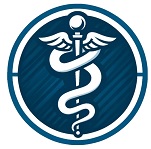Columbia Medical School stands at the forefront of healthcare education. To be accepted to its renowned institution requires an exceptional GPA, MCAT scores, meaningful extracurriculars, compelling personal statements and strong letters of recommendation.
Over 1600 applicants are interviewed every admissions cycle; this article provides a detailed outline of what can help to elevate your application to the forefront.
Academic Excellence
An applicant’s academic history and performance on Columbia’s Roy and Diana Vagelos College of Physicians and Surgeons’s renowned Medical College Admission Test (MCAT) are key determinants in whether they receive admission. To succeed, prospective applicants should focus on cultivating an impressive academic record while developing an expansive knowledge of healthcare services and ways in which to make meaningful contributions to society.
The Medical College Admission Test, or MCAT, is a standardized exam designed to measure an applicant’s aptitude and knowledge of core scientific concepts. As it plays such a vital role in applications to top medical schools, applicants should treat it seriously.
Letters of recommendation from mentors, professors and professionals are another critical aspect to take into account when choosing candidates for medical school admissions. These letters highlight an applicant’s character, work ethic and potential contributions to medical communities. Interview invitations also serve as a key indicator: those selected to interview have gained the support of someone who knows them personally and believes in their success as future physicians.
Extracurricular Activities
Columbia Medical School expects its applicants to complete a certain number of volunteer and shadowing hours; how much depends on your major, whether you completed research as an undergraduate and how you met prerequisites for medical school admission.
Columbia seeks individuals with remarkable stories to tell. The admissions committee seeks candidates who demonstrate not only academic excellence but also have a desire to make an impactful difference in their community and healthcare industry.
Students aspiring to the Ivy League need to start planning their applications well in advance in order to be competitive for admissions. By starting early, these applicants can build up an impressive set of experiences, letters of recommendation, and connections that will bolster their application. Furthermore, this gives them time to engage in meaningful extracurricular activities which highlight their personality and capabilities; such as community service projects, research initiatives or leadership roles.
Personal Statement
Personal statements are an integral component of your application process. Here is your chance to share your story and demonstrate why you would make an ideal student for the program in question. Invest enough time in crafting an engaging narrative to stand out. Keep in mind that AMCAS/AACOMAS only allow for up to 5,000 characters including spaces so focus on those experiences which best demonstrate your strengths and skills.
Admissions committees not only consider academic achievements and test scores when selecting candidates; they will also evaluate personal and professional experience, leadership, commitment to healthcare advancement, letters of recommendation are an invaluable asset in your application as they provide insight into passion, work ethic and potential of each applicant – these attributes help distinguish you amongst competing applicants during competitive admissions processes.
Letters of Recommendation
Letters of recommendation add depth and dimension to a college admissions application. Compiled by mentors, professors and professionals who know an applicant well – such as mentors or professors who have observed their work ethic or character – these letters give insight into who this individual truly is beyond numbers like GPA and MCAT scores.
Forming strong relationships with letter writers early in your pre-health journey is crucial. At meetings with them, try gathering as much information as possible so they can compose an in-depth letter that highlights all your most outstanding traits and capabilities.
Columbia Medical School accepts only 2% of applicants each year, yet still welcomes an impressive group who embody its core values of compassion, leadership and dedication to healthcare. Prospective healers must strive for academic excellence, foster meaningful community connections and craft an application that fulfills Columbia’s expectations of future physicians. Those taking this path should recognize it requires more than simply numerical qualifications – planning should begin at least a year in advance!
